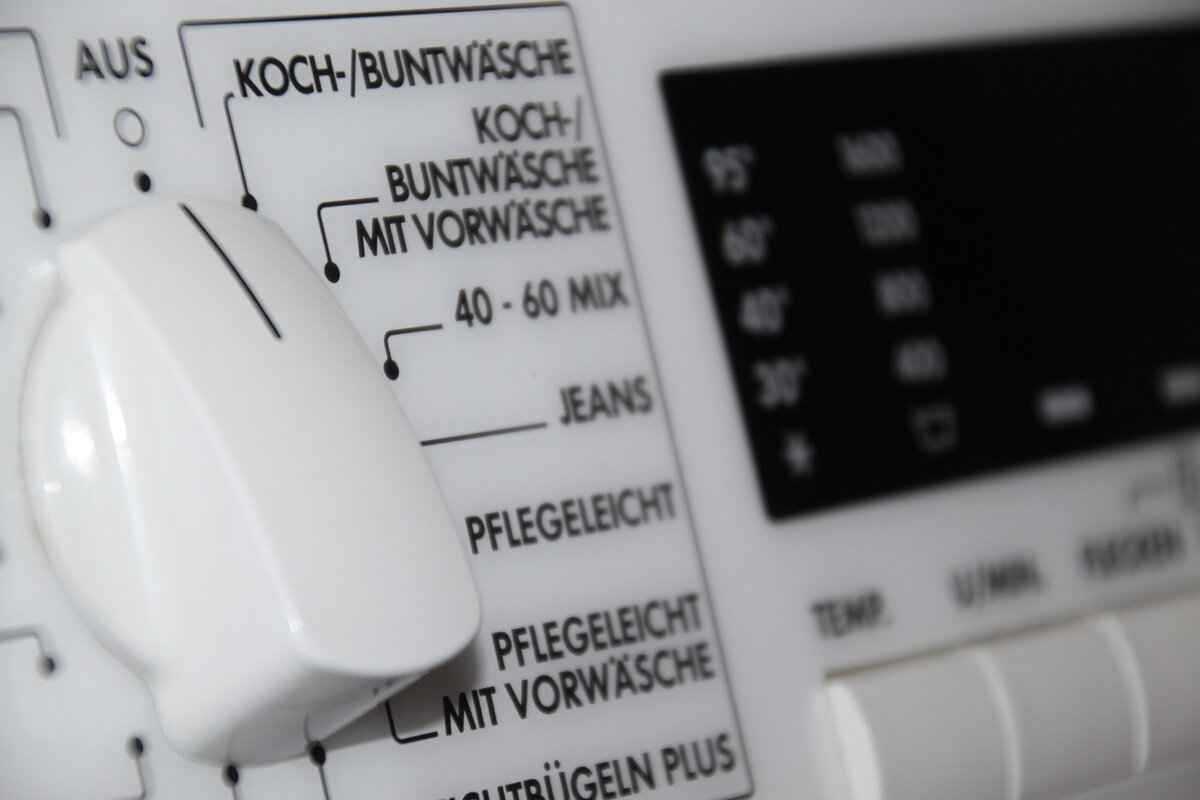This article explores the costs associated with faxing services at libraries, including pricing structures, additional fees, and alternative options available to patrons.
Understanding Library Fax Services
Many public libraries offer fax services as a valuable resource for their patrons. These services typically allow individuals to send and receive faxes, providing a crucial link for those who may not have access to a personal fax machine. Libraries often utilize professional-grade fax machines, ensuring reliability and efficiency. Additionally, librarians can assist patrons in navigating the faxing process, making it accessible for those who may be unfamiliar with the technology.
Typical Costs of Faxing at the Library
The cost of faxing can vary significantly from one library to another. On average, libraries charge between $0.50 and $2.00 per page for sending faxes, with receiving faxes usually being free or charged at a lower rate. Factors influencing these costs include the library’s geographical location, funding sources, and operational expenses. Libraries in urban areas may have higher fees due to increased overhead costs, while rural libraries might offer lower rates to accommodate their communities.
Local Variations in Pricing
- Urban Libraries: Typically, urban libraries may charge higher fees due to the higher cost of living and operational expenses.
- Rural Libraries: In contrast, rural libraries often provide more affordable rates to ensure accessibility for all residents.
Additional Fees and Charges
Beyond standard faxing fees, libraries may impose additional charges for services such as international faxing, color faxes, or sending faxes to premium numbers. It’s essential for patrons to inquire about any potential extra costs before utilizing the service to avoid surprises.
Free Faxing Alternatives
While libraries provide faxing services, there are also free alternatives available. Many community centers and nonprofits offer complimentary faxing services, making them a great resource for those looking to save money. Additionally, online fax services have become increasingly popular, allowing users to send faxes via email or web applications, often at a lower cost than traditional methods.
How to Use the Fax Services at Your Library
Using library fax services is generally straightforward. Patrons typically need to provide the documents they wish to fax, along with any necessary cover sheets. It’s advisable to check the library’s operating hours, as fax services may not be available during all open hours. Some libraries may require users to fill out a form or present identification before using the service.
Comparing Library Fax Costs to Other Options
When considering faxing options, it’s helpful to compare library rates with commercial fax services and personal fax machines. Commercial services often charge higher rates, which can add up quickly for frequent users. Conversely, investing in a personal fax machine may be cost-effective for those who fax regularly, but it also involves maintenance and operational costs.
Tips for Reducing Faxing Costs
To minimize faxing expenses, patrons can explore options such as bundling services offered by their library, which may include discounts for members. Additionally, taking advantage of library memberships can provide further savings. Libraries often have promotional periods or special offers that can help reduce costs, so it’s beneficial to stay informed about available options.
By understanding the costs and options available, patrons can make informed decisions about faxing at the library, ensuring they utilize this valuable resource effectively.

Understanding Library Fax Services
Libraries have evolved to meet the diverse needs of their patrons, and one of the essential services many offer is faxing. is crucial for users who may be unfamiliar with how these services operate or what they entail. This section will provide a comprehensive overview of what to expect when utilizing fax services at your local library.
Library fax services allow patrons to send documents via fax, a method still widely used in various sectors, including healthcare, legal, and corporate environments. Typically, libraries provide access to fax machines for public use, enabling users to send documents directly to recipients without needing personal fax equipment.
The operation of library fax services is generally straightforward. Most libraries have designated areas where patrons can access fax machines, often accompanied by staff who can assist with any technical issues. Users typically need to provide the following:
- Identification: A library card or a photo ID may be required.
- Document Preparation: Users must prepare their documents, ensuring they are in a suitable format for faxing.
- Payment: Payment methods vary by library, with some accepting cash, credit, or debit cards.
Library fax services often include various features to enhance user experience:
- Local and International Faxing: Many libraries allow both local and international faxing, although international faxes may incur higher fees.
- Assistance from Staff: Library staff are typically available to help patrons navigate the faxing process.
- Document Scanning: Some libraries offer scanning services, allowing users to convert physical documents into digital formats before faxing.
There are several compelling reasons to utilize fax services at libraries:
- Cost-Effective: Library fax services are often more affordable than commercial faxing options.
- Accessibility: Libraries provide free or low-cost access to fax machines, making them an excellent resource for those who may not have access at home.
- Community Support: Using library services helps support public institutions that play a vital role in community engagement and education.
Library fax services are typically available to all patrons, including:
- Members: Individuals with library memberships often have priority access to services.
- Non-Members: Many libraries allow non-members to use their fax services, although fees may apply.
- Community Groups: Local organizations may also utilize library resources for community-related tasks.
Understanding library fax services is essential for anyone looking to send documents efficiently and affordably. With accessible resources, knowledgeable staff, and a commitment to community support, libraries are a valuable asset for those in need of faxing services.

Typical Costs of Faxing at the Library
Understanding the cost of faxing at libraries is essential for patrons who may need to send important documents without incurring excessive fees. The pricing for fax services can vary widely based on several factors, including location, library size, and the specific services offered. This section aims to provide a comprehensive overview of typical costs associated with faxing at libraries.
Generally, libraries charge a fee per page for outgoing and incoming faxes. The average cost for sending a fax typically ranges from $0.50 to $2.00 per page. However, these rates can fluctuate significantly based on the library’s funding and operational costs. For example, larger urban libraries may charge higher fees due to increased overhead expenses, while smaller rural libraries might offer more affordable rates to encourage community use.
In addition to page rates, some libraries may have a minimum charge for faxing services, which could be around $1.00 to $5.00. This minimum fee ensures that even small faxes contribute to the library’s operational costs. Furthermore, there are often additional charges for international faxes, which can be significantly higher, sometimes reaching $5.00 or more per page.
| Type of Fax | Typical Cost |
|---|---|
| Local Fax (within the U.S.) | $0.50 – $2.00 per page |
| International Fax | $5.00 or more per page |
| Minimum Charge | $1.00 – $5.00 |
Several factors can influence these costs. For instance, libraries with limited budgets may keep their prices low to ensure accessibility for all patrons. In contrast, libraries in affluent areas might have higher fees due to increased demand for services. Additionally, the availability of technology can play a role; libraries that have upgraded their fax machines may offer faster and more efficient services, potentially justifying a higher cost.
Libraries may also offer discounts for members or during specific hours to encourage usage during off-peak times. For example, some libraries might provide a reduced rate for users who are members of the library or for seniors and students. It’s advisable to check with your local library for specific pricing and any available discounts.
In conclusion, while the cost of faxing at libraries can vary, understanding the typical pricing structures and the factors that influence these fees can help patrons make informed decisions. By being aware of the potential costs and available discounts, users can better utilize library resources for their faxing needs.
Local Variations in Pricing
When it comes to faxing services at libraries, can be significant. Understanding these differences is crucial for patrons who rely on faxing services. The cost of faxing can be influenced by several factors, including geographical location, library size, and community funding.
- Geographical Location: Libraries in urban areas often charge more for faxing services compared to their rural counterparts. This is primarily due to higher operational costs associated with maintaining facilities in densely populated regions. Urban libraries may need to cover expenses such as rent, utilities, and staffing, leading to increased fees for services like faxing.
- Library Size: Larger libraries typically have more resources and may offer more competitive pricing. These libraries can spread their operational costs over a larger patron base, allowing them to charge lower fees. In contrast, smaller libraries with limited funding may struggle to keep prices affordable, resulting in higher charges for faxing services.
- Community Funding: The financial health of a library can greatly affect its pricing policies. Libraries funded by local taxes may have more flexibility in setting prices, whereas those reliant on grants or donations might have to impose higher fees to cover their costs.
Furthermore, it’s essential to consider the demographics of the area served by the library. In regions with a higher population of low-income residents, libraries may choose to subsidize faxing services to ensure accessibility. This could result in lower fees or even free faxing services in some cases, as a way to support the community.
Additionally, some libraries may implement a tiered pricing structure based on the type of document being faxed. For instance, sending a simple black-and-white page might cost less than sending a color page or a document that requires special handling. Patrons should inquire about these details at their local library to understand the full scope of potential costs.
In summary, for faxing services at libraries are influenced by geographical location, library size, community funding, and local demographics. Understanding these factors can help patrons make informed decisions about where to fax documents and how to budget for these services.
Urban vs. Rural Libraries
When it comes to accessing library services, particularly faxing, there is a significant disparity between urban and rural libraries. Understanding these differences can help patrons make informed decisions about where to go for their faxing needs.
Operational Costs and Pricing Structures
Urban libraries typically face higher operational costs compared to their rural counterparts. This is largely due to factors such as increased rent, utility expenses, and staffing requirements in densely populated areas. As a result, many urban libraries charge more for their faxing services. For instance, while a rural library might charge a modest fee of $1 per page, an urban library could charge $2 or more per page. This pricing structure reflects the economic realities of operating in a city environment.
Service Availability and Demand
Another factor influencing the cost of faxing services is demand. Urban libraries often cater to a larger population, leading to a higher demand for services like faxing. To manage this demand, urban libraries may implement tiered pricing models, where patrons pay less for sending multiple pages at once or during off-peak hours. In contrast, rural libraries, with their smaller user base, may not have the same level of demand, allowing them to keep prices lower.
Access to Technology
Urban libraries are generally better equipped with advanced technology, which can also affect pricing. They may offer high-speed fax machines and additional services, such as online faxing, that rural libraries might not provide. The investment in technology can lead to higher operational costs, which are then passed on to patrons through increased fax fees. However, this enhanced service can justify the higher prices for users who value efficiency and speed.
Community Resources and Alternatives
In rural areas, libraries often serve as community hubs, providing not only faxing services but also access to computers and internet resources. This multifaceted role may allow rural libraries to offer competitive pricing for fax services, as they can leverage community funding and grants to subsidize costs. Urban libraries, while also community-focused, may rely more heavily on user fees to sustain their operations, resulting in higher costs for patrons.
Conclusion
In summary, the differences in faxing fees between urban and rural libraries stem from a variety of factors, including operational costs, demand, technology access, and community resources. While urban libraries may charge higher fees, they often provide additional services that can enhance the user experience. On the other hand, rural libraries may offer more affordable options, making them an attractive choice for patrons seeking cost-effective faxing solutions.
Library Size and Funding
The size and funding of a library are critical factors that directly influence its ability to provide affordable fax services to the community. Understanding how these elements interact can shed light on the pricing structures and availability of such essential services.
First, let’s explore the size of a library. Larger libraries typically have more resources, which can include advanced technology and more staff to assist patrons. This might allow them to offer fax services at a lower cost due to economies of scale. Conversely, smaller libraries may struggle to provide these services affordably as they often operate with limited budgets and fewer resources. The operational costs associated with maintaining a fax machine, such as maintenance and supplies, can be significant, especially for smaller institutions.
Next, funding plays a crucial role in determining the pricing of fax services. Libraries often rely on a combination of government funding, grants, and community donations. Libraries with stable and sufficient funding can subsidize the costs of fax services, making them more affordable for users. In contrast, libraries facing budget cuts or financial constraints may need to charge higher fees to cover their operational expenses. This can lead to disparities in service availability, particularly between urban and rural libraries.
Additionally, the location of a library can affect its funding and, consequently, its pricing for fax services. Urban libraries, which may have access to larger funding pools, can often afford to provide more services at lower costs compared to rural libraries, which may depend primarily on local funding sources. This geographical disparity can create challenges for patrons in less populated areas, who may find that their local library charges significantly more for faxing services.
Moreover, libraries that engage in community outreach and partnerships may be able to enhance their funding and offer more affordable services. For instance, collaborative efforts with local businesses or non-profits can provide additional resources that support fax services, allowing libraries to keep costs down for patrons.
In conclusion, the size and funding of a library significantly impact its ability to offer affordable fax services. Larger, well-funded libraries can provide these services at lower costs, while smaller, underfunded libraries may struggle to do the same. Understanding these dynamics helps patrons navigate the available options and make informed decisions about where to access fax services.
Additional Fees and Charges
When utilizing fax services at libraries, patrons often encounter various costs beyond the standard faxing fees. Understanding these is essential for budgeting effectively. This section will explore the potential extra costs associated with library fax services, providing a comprehensive overview to help users navigate their options.
Firstly, it’s important to recognize that libraries may charge for services such as cover sheets, which are often required for official documents. A cover sheet typically adds a nominal fee, usually ranging from $0.25 to $1.00, depending on the library’s pricing policy. This fee covers the cost of materials and the administrative effort involved in processing the fax.
Another common additional charge relates to international faxing. While domestic faxing fees may be straightforward, sending faxes internationally can incur significantly higher costs. Libraries may charge a flat fee for international faxes, which can range from $3.00 to $10.00 or more, depending on the destination country. Patrons should always inquire about these rates before sending international documents to avoid unexpected expenses.
Some libraries also impose fees for faxing oversized documents. Standard fax machines typically handle documents up to 8.5 x 11 inches, but larger documents may require special handling or equipment. Fees for oversized faxes can vary widely, often costing an additional $1.00 to $5.00 per page, depending on the library’s policies.
In addition to these charges, libraries may have fees for faxing during peak hours. For instance, if a library experiences high demand for its fax services during certain times, they might implement a surcharge during these periods. This strategy helps manage the workload and ensures that all patrons have fair access to the service.
Furthermore, some libraries offer premium services, such as priority faxing or expedited processing, which come with additional fees. These services are designed for patrons who need urgent assistance and can range from $5.00 to $15.00 depending on the urgency and the library’s operational capacity.
Lastly, it’s worth noting that some libraries may charge for technical support related to faxing. If patrons require assistance with the fax machine or have questions about the faxing process, libraries might impose a fee for one-on-one support. This fee can vary, so it’s advisable to check with the library beforehand.
In summary, while libraries provide essential faxing services, various additional fees can arise. By being aware of these potential charges—such as cover sheets, international faxing rates, oversized document fees, peak hour surcharges, premium services, and technical support fees—patrons can better prepare for the costs involved. Understanding these factors will help users make informed decisions and effectively utilize library fax services.

Free Faxing Alternatives
In today’s digital age, the need for faxing documents remains prevalent, despite the rise of email and other communication technologies. While many libraries offer faxing services, there are several free alternatives that individuals can utilize. This section will explore these options, their accessibility, and how they compare to traditional library services.
- Community Centers: Many local community centers provide free faxing services to residents. These centers often aim to support the community by offering essential services, including faxing. Users can typically access these services during regular operating hours, and no prior appointment is usually necessary. It’s advisable to check with your local community center for specific details regarding availability and any potential limitations on the number of pages that can be faxed.
- Nonprofit Organizations: Various nonprofit organizations, particularly those focused on helping low-income individuals, offer free faxing services. These organizations understand that access to communication tools is vital for job applications, legal documents, and other important correspondence. Researching local nonprofits in your area may lead you to additional free faxing resources.
- Online Fax Services: The rise of technology has introduced numerous online fax services that allow users to send faxes without needing a physical machine. Some platforms offer free trials or limited free faxing options, enabling users to send a certain number of pages each month at no cost. Services like HelloFax and JotForm Fax provide user-friendly interfaces that allow you to upload documents directly from your computer or cloud storage.
- Mobile Apps: With the proliferation of smartphones, several mobile applications enable users to send faxes directly from their devices. Apps like FaxBurner and eFax allow users to take pictures of documents and send them as faxes. Many of these apps offer free trials or limited free faxing options, making them an excellent choice for occasional users.
- Workplaces and Schools: If you are affiliated with a workplace or educational institution, you may find that they provide free faxing services for employees or students. Many companies and schools have fax machines available for use, and staff members are often willing to assist with the process. Always check with your HR department or school administration for their policies regarding faxing.
When comparing these alternatives to library fax services, it is essential to consider factors such as convenience, accessibility, and the number of pages allowed. While libraries may charge a nominal fee for their services, they often provide a reliable option for those who need to fax documents regularly. However, free alternatives can be a viable solution for individuals looking to save money or those who only need to fax occasionally.
In summary, while libraries are a dependable resource for faxing services, numerous free alternatives are available. By exploring community centers, nonprofits, online services, mobile apps, and workplace options, users can find accessible solutions that meet their faxing needs without incurring costs.
Community Centers and Nonprofits
Many individuals may find themselves in need of faxing services but are deterred by the associated costs. Fortunately, community organizations and nonprofits frequently offer free faxing services, making it easier for those who may not have access to a personal fax machine or the funds to utilize commercial services. This section will explore where to find these resources and how to access them effectively.
Community centers often serve as a hub for local services, including faxing. These centers are designed to assist residents with various needs, from educational resources to job placement services. They typically have the infrastructure to provide fax services at no cost, particularly for community members. To find your nearest community center, consider checking local government websites or community boards that list available services.
In addition to community centers, many nonprofit organizations focus on serving specific populations, such as low-income families, seniors, or individuals facing homelessness. These organizations often offer a range of services, including free faxing, to help their clients navigate essential tasks like job applications, medical appointments, or legal issues. To locate nonprofits that provide fax services, you can search online directories or visit platforms like GuideStar or Idealist, which list nonprofits by area and mission.
When accessing these services, it is important to be aware of the operational hours and any specific requirements that may be in place. Some community centers and nonprofits may require identification or proof of residency to use their fax services. Additionally, it’s advisable to call ahead or visit their websites to confirm availability, as some organizations may have limited hours or specific days dedicated to faxing services.
Another excellent resource for finding free faxing services is local libraries. While libraries were previously discussed in the context of their own faxing services, many also partner with community organizations to provide additional resources. Libraries often have bulletin boards or information desks where you can find flyers or announcements about nearby community centers and nonprofits offering free services.
In summary, if you are looking for free faxing services, community centers and nonprofits are valuable resources. By taking the time to research and reach out to these organizations, you can access the services you need without incurring costs. Whether you are a student, job seeker, or someone who needs to send important documents, these community resources can help you achieve your goals.
Online Fax Services
In today’s fast-paced digital environment, have emerged as a convenient and efficient alternative to traditional faxing methods. These services allow users to send and receive faxes via the internet, eliminating the need for physical fax machines and paper. This section will explore how online fax services function, their benefits, and the potential cost advantages they offer.
How Do Online Fax Services Work?
Online fax services operate by converting documents into digital formats that can be transmitted over the internet. Users typically sign up for a service and receive a dedicated fax number. To send a fax, they simply upload their document to the service’s platform, enter the recipient’s fax number, and hit send. The service then takes care of the rest, delivering the fax to the recipient’s traditional fax machine or another online fax service.
Benefits of Using Online Fax Services
1. Convenience: Online faxing can be done from anywhere with internet access, allowing users to send and receive faxes on-the-go.2. Cost-Effective: Many online fax services offer affordable monthly subscriptions or pay-per-use plans, often eliminating the need for costly hardware and supplies.3. Environmentally Friendly: By reducing paper usage, online fax services are a more sustainable option, appealing to environmentally conscious users.4. Enhanced Security: Most online fax services use encryption and secure servers, providing a safer way to transmit sensitive information compared to traditional methods.
Cost Advantages of Online Fax Services
When evaluating the costs associated with online fax services, it is essential to consider several factors. Traditional faxing often incurs expenses related to hardware, maintenance, and consumables like paper and ink. In contrast, online fax services typically charge a flat monthly fee or a per-fax rate, which can lead to significant savings for individuals and businesses alike.
For example, a typical online fax service may charge around $10 to $20 per month for a basic plan that includes a set number of faxes. This is considerably less than the costs associated with maintaining a physical fax machine. Additionally, many services offer free trials, allowing users to test the platform before committing financially.
Comparing Online Fax Services to Traditional Faxing
When comparing online fax services to traditional faxing, the differences in cost and convenience become evident. Traditional faxing often involves ongoing expenses such as phone lines, fax machines, and maintenance. In contrast, online services require only an internet connection and a device capable of accessing the web, making them a more economical choice for many users.
Furthermore, online fax services often provide additional features such as cloud storage integration, electronic signatures, and the ability to send faxes via email. These features enhance productivity and streamline workflows, particularly for businesses that rely heavily on fax communications.
In conclusion, online fax services represent a modern solution to an age-old communication method. By understanding how these services work and the potential cost advantages they offer, users can make informed decisions that align with their needs and budget. As more individuals and businesses transition to digital solutions, online faxing is poised to become the standard for document transmission.

How to Use the Fax Services at Your Library
Using library fax services can be a convenient and cost-effective option for many patrons. Understanding how to navigate these services can make the process seamless and efficient. Below is a comprehensive guide outlining the steps to effectively use fax services available at your local library.
Step 1: Locate Your Library’s Fax ServicesMost libraries will have a designated area for faxing, often near the reference desk or in a specific section dedicated to public services. To find out where these services are located, check your library’s website or inquire at the front desk. It’s also useful to confirm the availability of fax services, as some libraries may have specific hours or may require prior reservations.
Step 2: Gather Required DocumentationBefore heading to the library, ensure you have all necessary documents ready for faxing. This may include:
- Cover Sheet: Some libraries provide templates, while others may require you to bring your own.
- Recipient Information: Have the recipient’s fax number and any relevant details, such as a name or department.
- Identification: Depending on the library’s policy, you might need to show ID, especially if the service is fee-based.
Step 3: Understand the Operating HoursLibrary hours can vary, and it’s important to know when fax services are available. Most libraries operate on a standard schedule, but some may have reduced hours for specific services. Visit the library’s website or call ahead to confirm the times when fax services are offered, and be aware of any potential restrictions.
Step 4: Using the Fax MachineOnce at the library, approach the fax machine. If you are unfamiliar with how it operates, don’t hesitate to ask a librarian for assistance. They can guide you through the process, which typically involves:
- Placing documents in the feeder.
- Entering the recipient’s fax number.
- Selecting any additional options, such as color or number of copies.
After sending the fax, ensure you receive a confirmation that it has been transmitted successfully.
Step 5: Payment and FeesBe prepared to pay for the fax service if applicable. Libraries often charge a nominal fee per page, and payment methods may vary. Some libraries accept cash, while others may allow credit or debit card transactions. It’s wise to check the pricing structure beforehand to avoid any surprises.
Step 6: Follow-UpIf you do not receive a confirmation or if the fax is particularly important, consider following up with the recipient to ensure it was received. Libraries may also provide you with a receipt or confirmation slip, so keep this for your records.
By following these steps, using the fax services at your library can be a straightforward and efficient process. Whether you need to send important documents for work, school, or personal matters, knowing how to navigate library fax services can save you time and money.
Required Documentation
When utilizing fax services at the library, it is essential to prepare adequately by bringing along the necessary documentation. This ensures a smooth and efficient experience. Below, we outline the key documents and items you should have on hand before heading to the library’s fax service.
Most libraries require valid identification to access their fax services. This can include:
- Driver’s License
- State ID
- Passport
Having a form of ID not only verifies your identity but may also be necessary for library membership verification, especially if you are a first-time user of the fax service.
Before you arrive, ensure that the documents you wish to fax are properly prepared. This includes:
- Clear Copies – Make sure the documents are legible and free from marks or stains.
- Correct Formatting – If you are sending forms or applications, check that they are filled out completely.
- Recipient Information – Have the recipient’s fax number and any necessary cover sheets ready.
Being organized with your documents can save time and prevent potential issues during the faxing process.
While many libraries offer affordable faxing services, it’s wise to check the payment methods accepted. Generally, libraries may accept:
- Cash
- Credit/Debit Cards
- Library Membership Cards – Some libraries allow members to use their account balance for fax services.
Confirming the payment options beforehand can help you avoid any last-minute surprises.
In addition to the required documentation, consider bringing:
- USB Drive or Laptop – If you need to fax digital documents, having these devices can be useful.
- Notebook or Pen – For jotting down important information, such as the recipient’s details or any instructions from library staff.
These items can facilitate a more efficient process and ensure you don’t miss any critical steps.
Lastly, familiarize yourself with the library’s faxing policies. Some libraries may have specific rules regarding:
- Number of Pages – There may be limits on how many pages you can send at once.
- Hours of Operation – Ensure you are aware of when fax services are available.
- Privacy Regulations – Understand how the library handles sensitive documents.
Being informed about these policies can help avoid any complications during your visit.
In conclusion, preparing the right documentation and understanding the library’s faxing process can significantly enhance your experience. By following these guidelines, you can ensure that your faxing needs are met efficiently and effectively.
Operating Hours and Availability
Understanding the operating hours of library fax services is essential for anyone needing to send documents efficiently. Libraries typically have set hours during which their services are available, and these hours can vary significantly based on the location and type of library. In this section, we will explore the general hours of operation, any restrictions that may apply, and tips for maximizing your use of library fax services.
Most public libraries operate during standard business hours, which can range from 8 AM to 8 PM on weekdays. However, many libraries may have reduced hours on weekends, often opening around 10 AM and closing by 5 PM. It is crucial to check the specific hours of your local library, as they can differ based on community needs and staffing levels.
In addition to regular hours, some libraries may offer extended hours for specific services, including faxing. For instance, larger urban libraries may provide after-hours access to certain resources, while smaller rural libraries might have more limited availability. Always confirm with your library about their specific fax service hours, as they may not align perfectly with general library hours.
- Weekdays: Typically 8 AM – 8 PM
- Weekends: Usually 10 AM – 5 PM
- Holidays: Many libraries close on public holidays, so always check in advance.
Another important consideration is the restrictions on faxing services. Some libraries may limit the number of pages you can send in a single session or require that you use the fax machine for specific purposes only, such as sending documents related to job applications or government forms. Understanding these restrictions can help you plan your visits more effectively.
To make the most of your library’s fax services, consider the following tips:
- Arrive early to avoid long lines, especially during peak hours.
- Have all necessary documents ready to streamline the process.
- Check if your library offers online booking for fax services to secure a time slot.
In conclusion, knowing the operating hours and any restrictions related to fax services at your library can significantly enhance your experience. Always stay informed about your local library’s policies and be proactive in planning your visits to ensure your faxing needs are met efficiently.

Comparing Library Fax Costs to Other Options
When it comes to sending faxes, understanding the costs associated with various methods is crucial for making informed decisions. Libraries often provide fax services at a relatively low cost, but it’s important to compare these prices with other available options. This section will explore the costs of library faxing in relation to commercial fax services and personal fax machines.
Library fax services typically charge a nominal fee per page, which can range from $0.50 to $2.00 depending on the library’s location and funding. Many libraries also offer discounts for members or bulk faxing. For instance, a common pricing structure may include:
- First page: $1.00
- Subsequent pages: $0.50 each
- International faxes: $2.00 per page
These costs are generally lower than commercial fax services, which can charge between $2.00 to $5.00 per page, especially for international transmissions. Therefore, for occasional users, library services can be a more economical choice.
Commercial fax services, such as those offered by FedEx or UPS, often come with additional fees. These services might include features like confirmation receipts and secure transmission, but they come at a premium. For example:
- Standard faxing: $2.00 per page
- Confirmation receipts: $1.00 extra
- International rates: $5.00 per page
While these commercial options may provide additional features, the costs can add up quickly, making library services a more attractive alternative for those who do not require advanced features.
For individuals who frequently send faxes, investing in a personal fax machine might be worth considering. The initial cost of a fax machine can range from $100 to $500, depending on the model and features. Additionally, there are ongoing costs to consider:
- Paper and toner: Approximately $0.05 to $0.10 per page
- Phone line costs: Monthly charges for a dedicated line
- Maintenance costs: Occasional repairs and servicing
While owning a fax machine can be cost-effective for heavy users, the upfront investment and maintenance can be a barrier for infrequent users. Moreover, the convenience of library services, which do not require any equipment or maintenance, can be appealing.
When comparing library fax costs to other options, it’s clear that libraries provide an economical solution for occasional users. While commercial services offer convenience and additional features, they often come at a higher price. On the other hand, owning a personal fax machine may be suitable for frequent users, but the initial investment and ongoing costs need to be carefully considered. Ultimately, evaluating your specific faxing needs will help you determine the best option for your situation.
Commercial Fax Services
are often sought after by individuals and businesses that require reliable and swift communication. However, the costs associated with these services can significantly vary, leading to a need for careful consideration when choosing a faxing solution. This section will analyze the pricing structures of commercial fax services and how they compare to the more budget-friendly options available at libraries.
Commercial fax services typically charge users based on a variety of factors, including the number of pages sent, the destination of the fax, and any additional features offered, such as confirmation receipts or encryption. On average, the cost for sending a fax through a commercial service can range from $1 to $5 per page, depending on the provider and the complexity of the service.
In contrast, libraries generally offer fax services at a much lower rate, often charging between $0.10 to $1.00 per page. This substantial difference in pricing makes libraries an attractive option for individuals needing to send faxes without incurring high costs. For those who fax frequently, the savings can be considerable.
Several factors can influence the pricing of commercial fax services:
- Volume of Faxes: Higher volume users may benefit from discounted rates.
- Geographical Location: Sending faxes internationally can incur higher fees.
- Service Features: Additional features like tracking and confirmation can increase costs.
Using library fax services not only provides a cost-effective solution but also offers several other benefits:
- Accessibility: Libraries are often conveniently located and accessible to the public.
- Support Staff: Library staff can assist patrons unfamiliar with faxing technology.
- No Membership Fees: Most libraries do not require a membership to access fax services.
When deciding between commercial fax services and library options, it is essential to consider not only the cost but also the convenience and support available. For occasional users or those on a budget, library fax services present a highly economical alternative, while commercial services may cater to those needing more advanced features or higher volume capabilities. By weighing these factors, users can make informed decisions that best suit their faxing needs.
Personal Fax Machines
For individuals who frequently utilize fax services, investing in a personal fax machine can be a practical choice. This section will examine the various costs and benefits associated with owning a personal fax machine, providing insights into whether this option is suitable for your needs.
Understanding the Costs
When considering the purchase of a personal fax machine, it is essential to evaluate the initial investment and ongoing expenses. The price of a basic fax machine can range from $50 to $300, depending on the brand, features, and functionality. More advanced models, which may include capabilities such as scanning, printing, and copying, can cost upwards of $500. Additionally, users should factor in the costs of paper and ink or toner, which can add to the overall expense.
- Initial Purchase Cost: The upfront cost can vary widely based on the machine’s features.
- Maintenance Costs: Regular maintenance, including replacement of ink and paper, should be considered.
- Electricity Usage: Operating a fax machine will incur electricity costs, although they are generally minimal.
Benefits of Owning a Personal Fax Machine
One of the primary advantages of having a personal fax machine is the convenience it offers. Users can send and receive faxes from the comfort of their homes or offices without relying on external services. This can save time, particularly for those who need to send multiple documents regularly.
Another significant benefit is the potential cost savings over time. For frequent fax users, the cumulative costs of using public fax services or library resources can add up quickly. Owning a personal fax machine can eliminate these recurring expenses, making it a cost-effective solution in the long run.
Privacy and Security Considerations
When using public fax services, there is always a risk of sensitive information being compromised. By having a personal fax machine, users can maintain greater control over their documents, ensuring that confidential information remains secure. This is particularly important for businesses and individuals handling sensitive data.
Space and Portability
It is also important to consider the space required for a personal fax machine. While many models are compact and can fit easily on a desk, users must ensure they have adequate space for operation. Additionally, portable fax machines are available, making it easy for users to send faxes while traveling or working remotely.
Conclusion
In summary, for frequent fax users, owning a personal fax machine can be a valuable investment. The initial and ongoing costs should be weighed against the benefits of convenience, cost savings, and enhanced privacy. By considering these factors, individuals can make an informed decision about whether a personal fax machine is the right choice for their faxing needs.

Tips for Reducing Faxing Costs
Faxing services can sometimes lead to unexpected expenses, especially for those who rely on them frequently. However, there are a variety of strategies that savvy users can implement to minimize these costs significantly. Below are some practical tips that can help you save money while utilizing faxing services.
Before diving into specific cost-saving strategies, it’s essential to assess your faxing needs. Consider how often you need to send faxes and the volume of documents involved. This understanding will help you tailor your approach and choose the most cost-effective options.
Many libraries offer faxing services at a fraction of the cost of commercial providers. By leveraging these services, you can save significantly. Some libraries even provide free faxing for members or discounted rates for frequent users. Be sure to check your local library’s policies and pricing structure.
Some libraries and community centers offer bundled services that include faxing along with other services like printing or scanning. By bundling these services, you can often receive a discounted rate compared to using each service separately. Inquire about any available packages that can help you save money.
If you are a frequent user of library services, consider obtaining a library membership. Many libraries offer discounts on faxing for members, which can lead to substantial savings over time. Memberships often come with additional benefits, such as access to other resources and services.
In addition to libraries, many community centers and nonprofits offer free faxing services. Research local organizations that provide these services and take advantage of them. This can be especially useful for individuals who do not require frequent faxing but need the service occasionally.
In today’s digital age, online fax services are becoming increasingly popular. These services often come with lower rates compared to traditional faxing methods. By using an online fax service, you can send documents directly from your computer or mobile device, eliminating the need for physical trips to a library or fax center.
Another effective way to reduce faxing costs is by minimizing the length of the documents you send. Each page typically incurs a fee, so consider condensing your documents or combining multiple pages into a single document when possible. This can significantly lower the number of pages you need to fax.
Some libraries and services may have specific hours when faxing is cheaper or even free. Always check the operating hours and any special promotions. Timing your faxing during these periods can lead to additional savings.
Consider using mobile applications designed for faxing. Many of these apps offer competitive rates and sometimes even free trials. By utilizing technology, you can bypass traditional faxing costs altogether.
By implementing these strategies, you can effectively reduce your faxing expenses. Whether through library services, community resources, or online alternatives, there are numerous ways to save money while ensuring your documents are sent efficiently.
Bundling Services
in libraries can be an effective way to reduce overall costs for patrons seeking faxing options. Many libraries today recognize that offering bundled services not only attracts more users but also enhances the value of their offerings. This section will delve into how bundling services, including faxing, can lead to significant savings for library patrons.
When libraries offer bundled services, they typically combine multiple services into a single package at a discounted rate. For instance, a library might provide a package that includes faxing, printing, and scanning services. This approach not only simplifies the user experience but also encourages patrons to utilize more services than they might have otherwise. By opting for a bundled service, users can often save money compared to paying for each service individually.
One of the main advantages of bundling is the cost-effectiveness. Libraries often assess the usage rates of their services and find that patrons who use one service are likely to use others. By creating bundled packages, libraries can attract these users and offer them a better deal. For example, rather than charging $2 for a single fax and $0.25 per printed page, a library might offer a bundle for $5 that includes a fax and ten printed pages. This not only saves money for the user but also increases the library’s revenue from service usage.
Additionally, bundling can lead to increased patron loyalty. When users feel they are receiving good value for their money, they are more likely to return to the library for future needs. This is particularly important in today’s digital age, where many people may not consider visiting a library for services that can be done online. By offering attractive bundles, libraries can position themselves as a valuable resource in the community.
Moreover, bundling can help libraries manage their operational costs more effectively. By streamlining services into packages, libraries can optimize their resources and reduce the administrative burden associated with processing individual transactions. This efficiency can translate into lower prices for patrons, creating a win-win situation.
In conclusion, bundling services like faxing can significantly reduce costs for library patrons while enhancing the overall value of library offerings. As libraries continue to adapt to the changing needs of their communities, bundling will likely play a key role in their service strategies, fostering greater engagement and satisfaction among users.
Using Library Memberships
Library memberships can be a valuable asset for individuals seeking to access various services, including faxing. Many libraries offer special discounts or benefits to their members, which can lead to significant cost savings when utilizing fax services. Understanding how to leverage these memberships effectively can enhance your library experience and reduce expenses.
Firstly, it’s important to recognize that library membership often comes with a range of perks. These can include free or discounted access to various services, including faxing. For instance, some libraries may charge a standard fee for faxing services, but members might receive a discount of up to 50% or more. By taking advantage of these discounts, you can save money, especially if you find yourself needing to send faxes regularly.
To maximize your savings, start by checking the specific benefits associated with your library membership. Many libraries provide detailed information on their websites or through member newsletters. Look for sections that outline the costs of faxing and any applicable member discounts. Additionally, don’t hesitate to ask library staff for clarification on membership benefits. They can provide insights into how to optimize your use of library services.
Moreover, some libraries offer bundled services for members, which can include not only faxing but also printing, copying, and scanning services. By opting for a membership that includes these services, you can further reduce your overall costs. For example, if you frequently use multiple services, a bundle may be more economical than paying for each service separately.
Another aspect to consider is the frequency of your faxing needs. If you anticipate needing to send multiple faxes, it may be worthwhile to invest in a library membership. The cost of membership is often nominal compared to the savings you can achieve through discounts on services. For instance, if a membership costs $20 a year but saves you $1 per fax, sending just 20 faxes would cover the membership cost.
Additionally, some libraries may host special events or workshops that educate members on how to use library services effectively, including faxing. Participating in these events can provide you with valuable tips and tricks for navigating library resources, ensuring you get the most out of your membership.
In conclusion, leveraging library memberships can lead to significant cost savings when it comes to faxing services. By understanding the benefits associated with your membership, exploring bundled service options, and participating in library events, you can enhance your experience and make the most of your local library’s offerings. Be proactive in seeking information about available discounts and take full advantage of your membership to enjoy all the services your library has to offer.

Conclusion: Making the Most of Library Fax Services
Utilizing library fax services can be a practical and cost-effective solution for many individuals. By understanding the costs and options available, patrons can make informed decisions about faxing at their local library. This section will summarize key points and encourage readers to explore their library’s offerings.
First and foremost, it’s essential to recognize that library fax services are often affordable compared to commercial options. Many libraries charge a nominal fee per page, making it an attractive choice for those who do not frequently use fax services. Additionally, some libraries may offer free faxing days or promotional discounts that can further reduce costs.
Moreover, understanding the operating hours and availability of fax services is crucial. Libraries typically have set hours during which their fax services are available. Patrons should check with their local library to ensure they visit during these times to avoid any inconvenience. Furthermore, some libraries may require patrons to complete a registration process or present a library card to access fax services, so it’s wise to inquire about any necessary documentation beforehand.
In addition to traditional fax services, many libraries also provide alternative options for sending documents. For instance, some libraries offer access to computers with internet capabilities, allowing patrons to utilize online fax services. This can be particularly beneficial for those who prefer a digital approach or need to send large files that may not be suitable for traditional faxing.
Moreover, libraries often serve as community hubs, providing access to additional resources. Patrons can find information on nearby community centers or nonprofits that offer free faxing services. This is especially helpful for individuals who may not have the financial means to pay for faxing regularly. By leveraging these community resources, patrons can save money while still meeting their faxing needs.
Finally, it is essential to encourage library patrons to explore their local library’s full range of services. Many libraries offer workshops or informational sessions on using their resources effectively, including fax services. Engaging with library staff can also provide valuable insights into any special events or promotions that may be available, allowing patrons to maximize their library experience.
In conclusion, by understanding the costs associated with faxing at the library and exploring the various options available, patrons can make well-informed decisions that best suit their needs. Libraries are not just places for borrowing books; they are valuable resources for accessing essential services like faxing. Therefore, patrons are encouraged to take advantage of these offerings and make the most of their library experience.
Frequently Asked Questions
- What is the typical cost of faxing at a library?
The cost of faxing at libraries can vary widely, typically ranging from $1 to $5 per page. Factors such as location, library size, and funding can influence these prices.
- Are there any additional fees for faxing services?
Yes, some libraries may charge extra fees for services like international faxing or sending multiple pages. It’s always a good idea to check with your local library for their specific fee structure.
- Can I fax documents for free at any location?
Yes! Many community centers and nonprofit organizations offer free faxing services. You can also explore online fax services that may provide free trials or low-cost options.
- What documents do I need to bring to fax at the library?
Generally, you should bring the documents you wish to fax, along with any necessary identification or membership card, especially if your library offers discounted rates for members.
- What are the operating hours for library fax services?
Library faxing services typically operate during regular library hours, but it’s best to check your local library’s schedule, as some may have specific hours for fax services.















